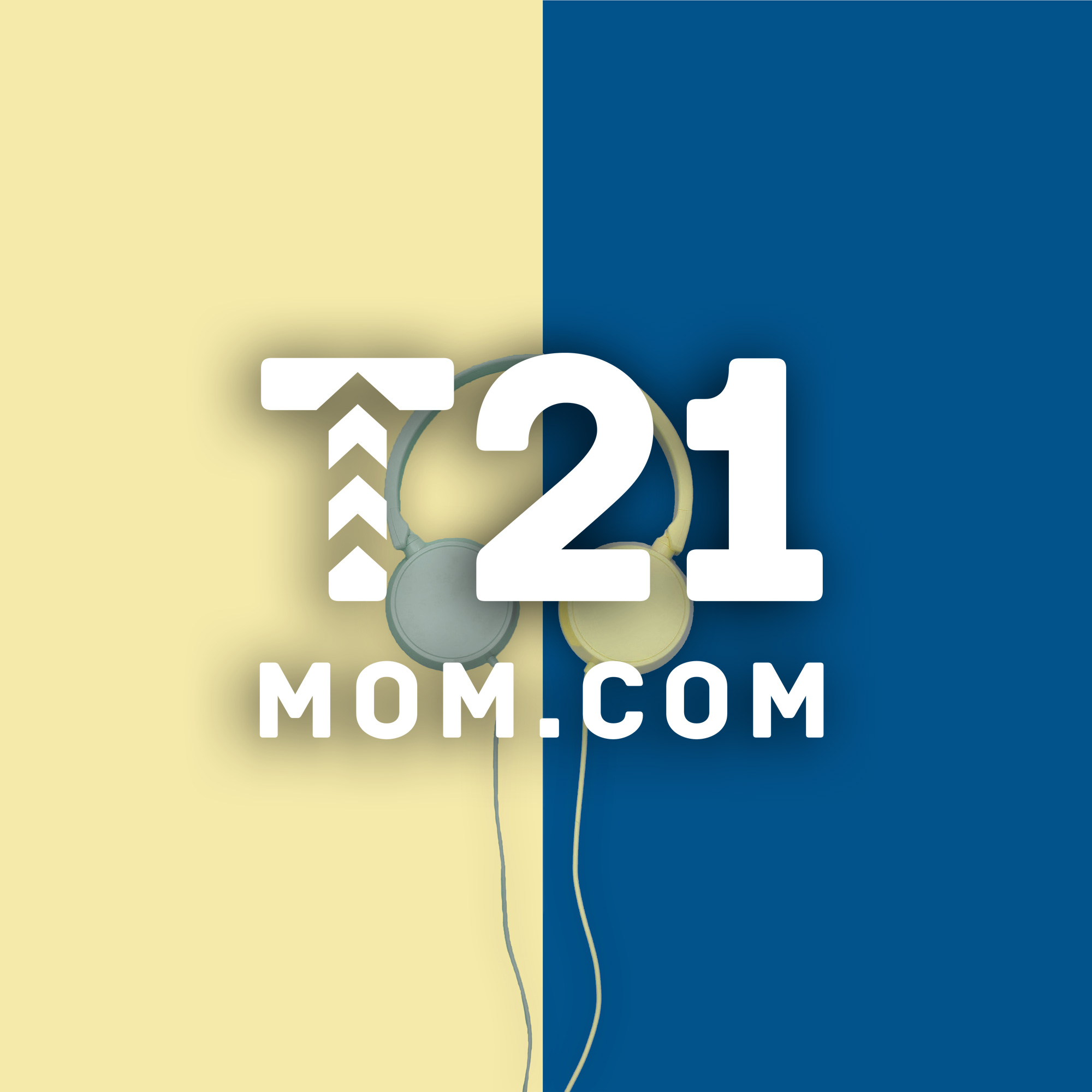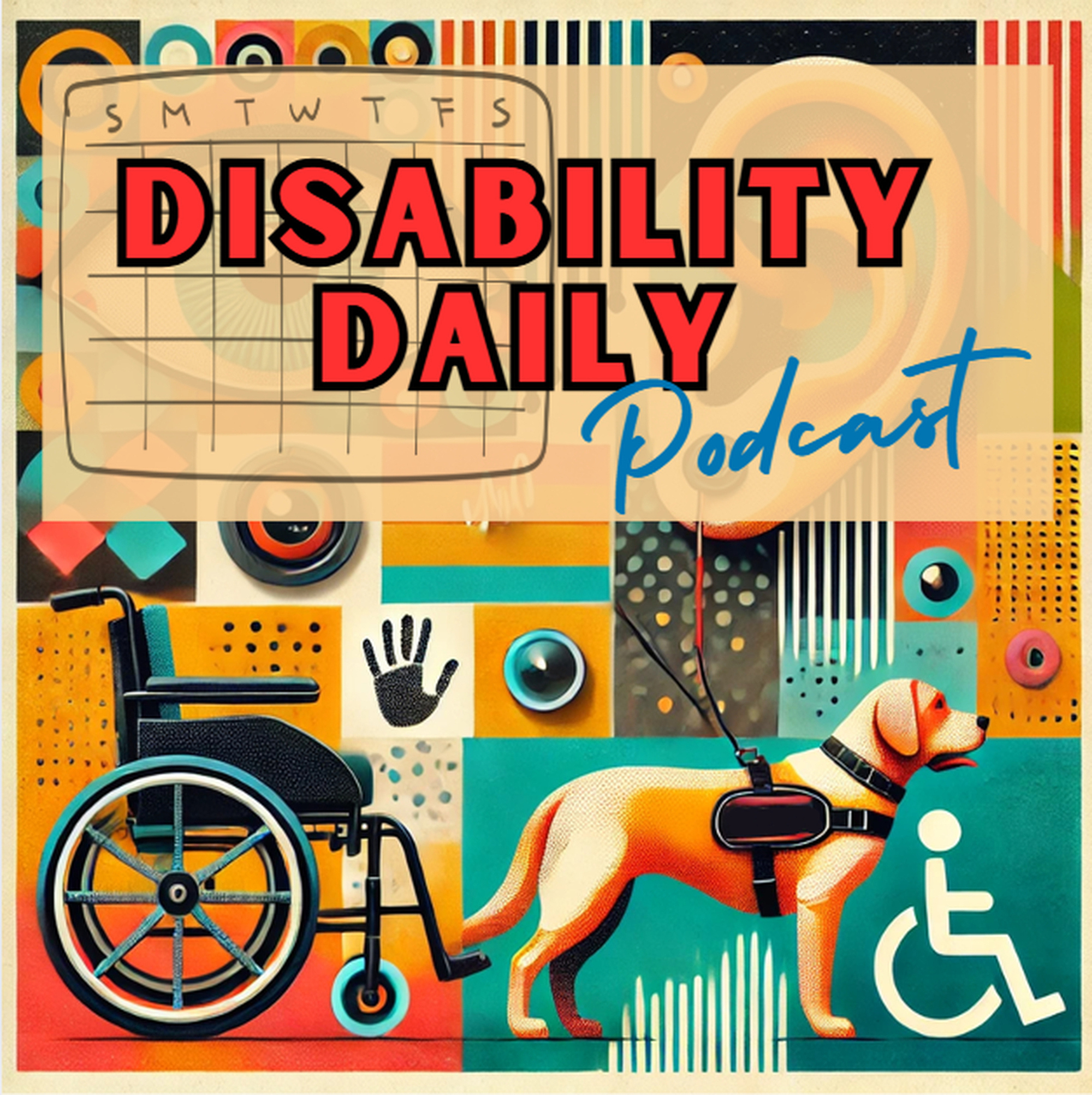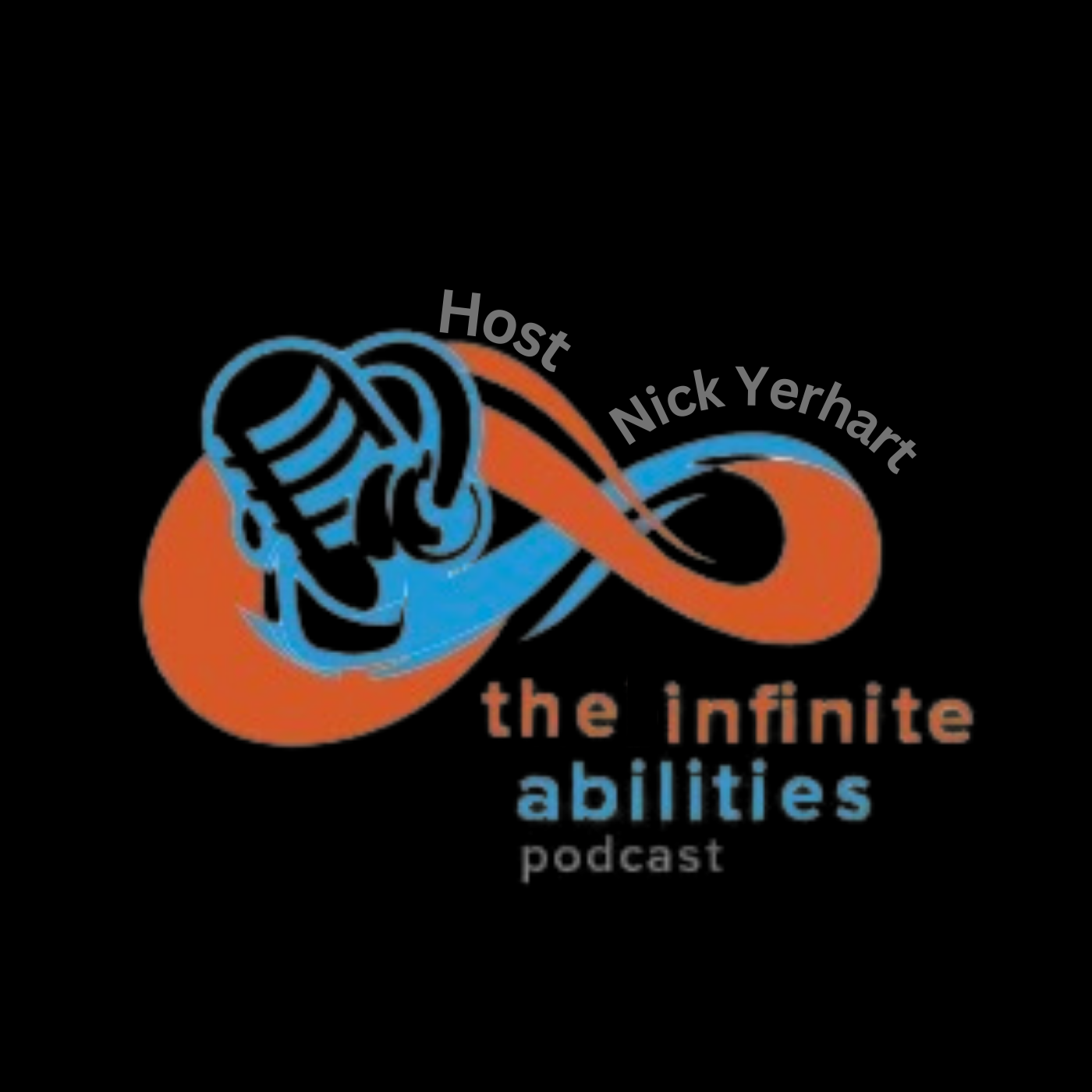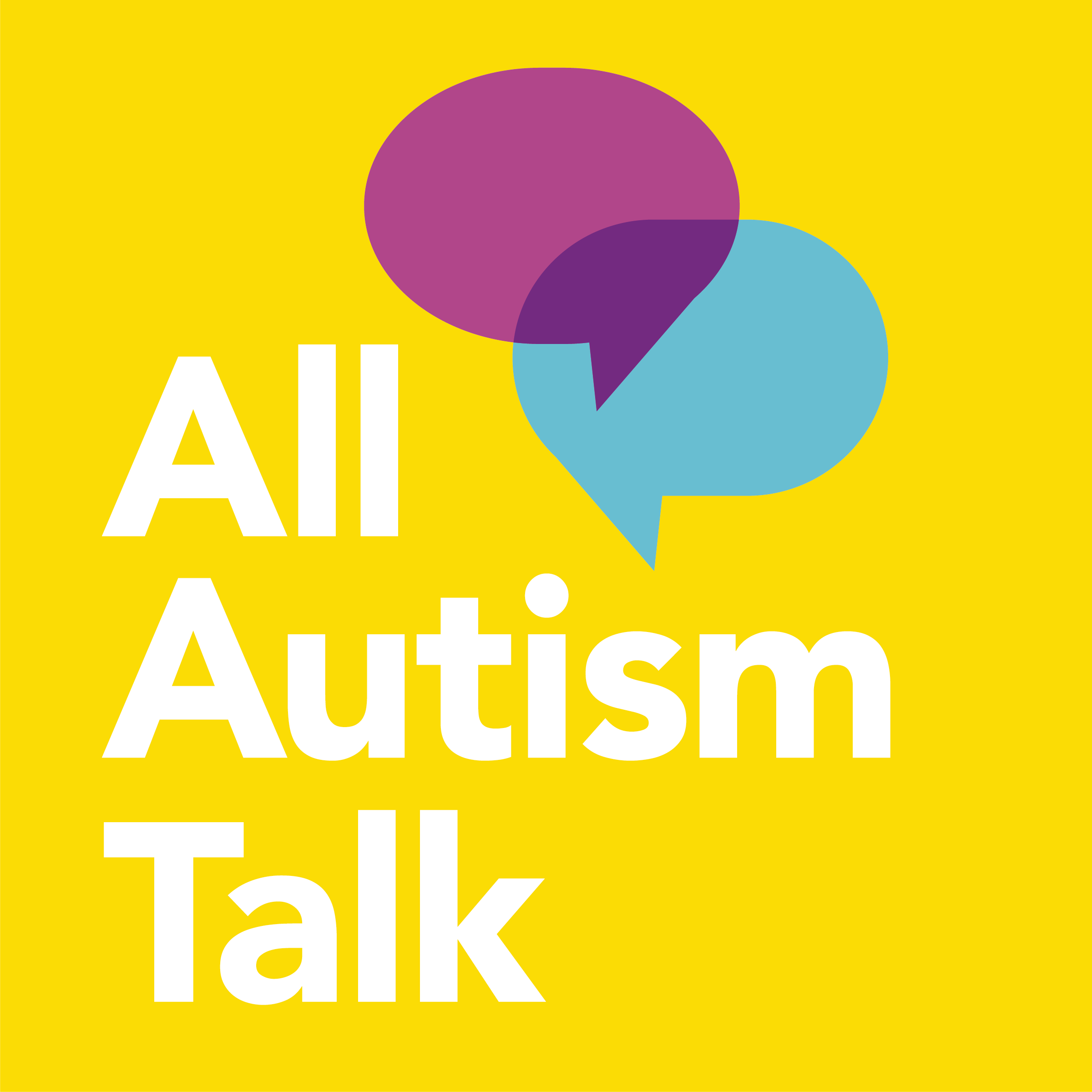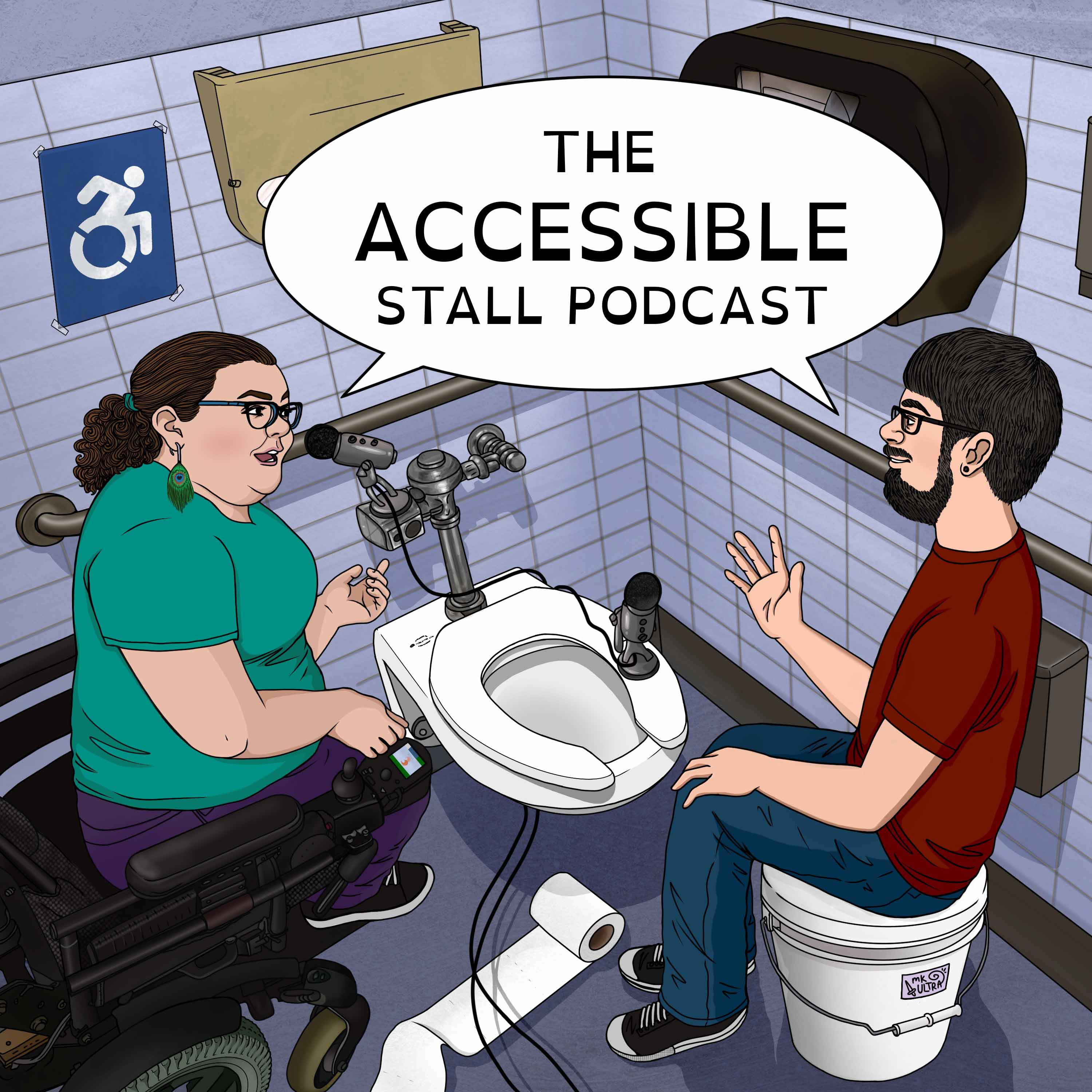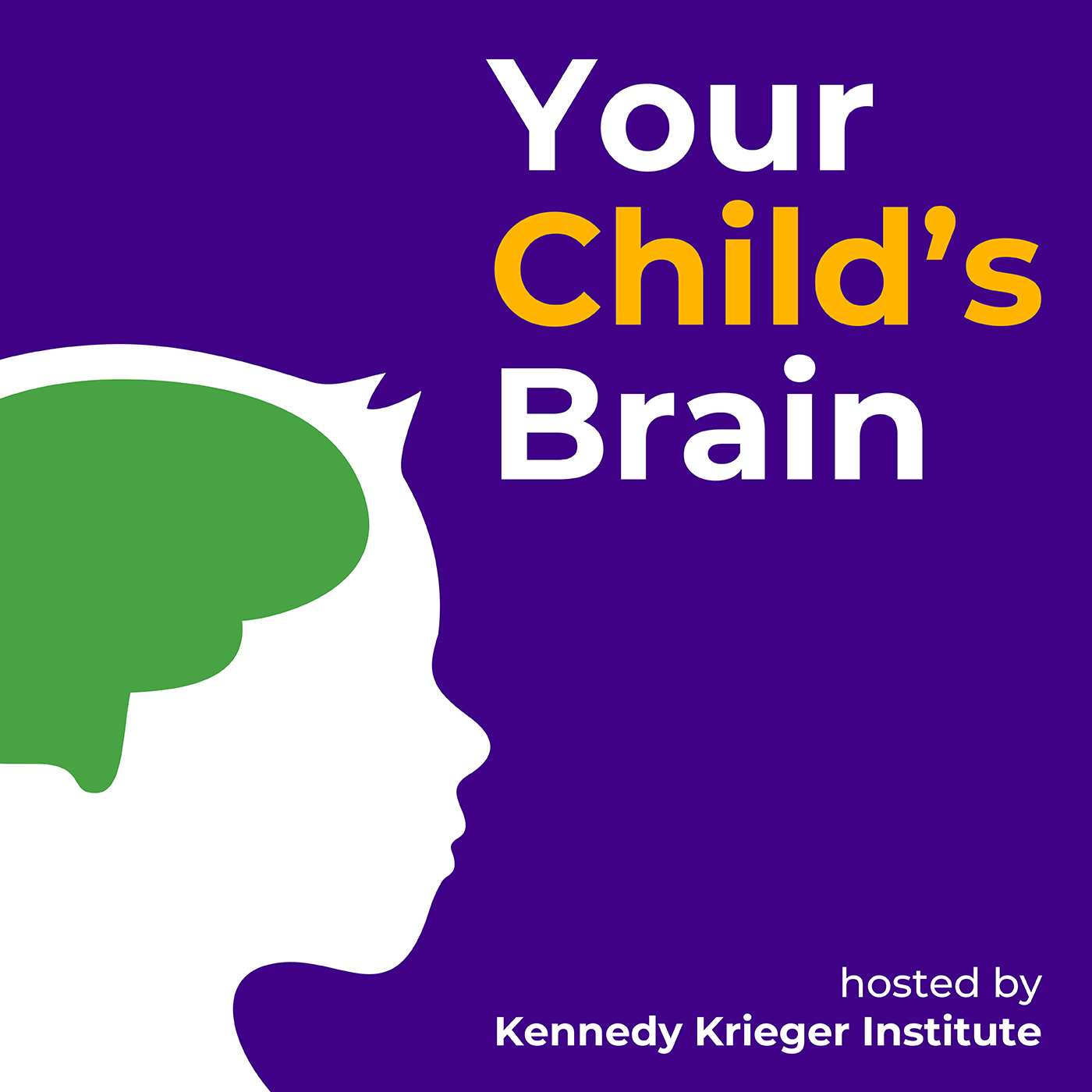
The Post Secondary Transition Podcast
A podcast focused on the ins and outs (and everything in between) of the secondary transition process for families of students with disabilities! Hosts Meghan (Smallwood) and Patrick (Cadigan) serve as supportive guides, leading families step-by-step up each rung of the transition ladder.
Also check out our parent website: https://www.postsecondarytransition.com
The Post Secondary Transition Podcast
064. Interview: YouTube Content Creator Cody Leach Pt. 1
This week, hosts Meghan (Smallwood) and Patrick (Cadigan) feature a conversation with content creator Cody Leach. Cody's YouTube channel boasts 175k subscribers and he shares his journey to becoming a full-time YouTube content creator specializing in movie reviews. Cody emphasizes the importance of focusing on a niche, differences in sound for video-only content, the challenges of dealing with negative feedback and differences between live streaming and pre-recorded content. Join the conversation!
Episode Keywords:
YouTube content creator, horror movie reviews, transition process, student interviews, college experience, podcasting journey, video editing, audience engagement, recording space, live streaming, feedback management, equipment investment, content focus, editing process, niche content
Links:
Cody Leach -
YouTube (link)
Facebook (link)
Real Creators - Cody Leach's Journey From 0 to 100,000 Subscribers (link)
The Lost River Drive-In - Cody Leach Talks Horror & Advice For Content Creators (link)
To download a copy of a transcript for this episode or any of our previous conversations, click here.
Also visit our Podcast webpage to find links to all of our other discussions; go to www.p2transition.com.
Additional information about post-secondary transition can be found at our website.
The Post-Secondary Transition Podcast Facebook page.
Visit our YouTube Channel to find additional video resources.
Intro/Outro music by AudioCoffee from Pixabay.
Transition music by Joseph McDade from Transistor.
Welcome. This is the Post Secondary Transition Podcast where we have conversations around the ins and outs and everything in between of the transition process for families of students with disabilities. I'm one of the hosts. My name is Meghan Smallwood, and I am a public school transition coordinator. And as always, I have my co host with me.
Patrick Cadigan:My name is Patrick Cadigan. I am also a public school transition coordinator. So the next two discussions that we post are something a little bit different for us, but it does parallel with what we do.
Meghan Smallwood:Yes, definitely.
Patrick Cadigan:Background as part of the transition process. You have heard Meghan and I talk about the student interview, we've had the opportunity to talk with students and ask them about what they want to do or what they see themself doing. Invariably, during these interviews, we constantly hear students say that they want to be YouTubers, right? Make videos at home about something they're interested in. These could be videos about video game walk throughs, tips, tricks. It could even be about goats and all the amazing things that go along with being a goat. The idea, though, is usually followed by success and becoming an online sensation. So Meghan and I talked about it, and we hit on the idea to ask someone who is actually doing it; creating and publishing content to YouTube. So in comes Cody Leach. For the uninitiated, Cody is a YouTube content creator that centers on reviews and commentary around horror movies. He's doing pretty well for himself right now. You'll hear in the discussion that he committed to the platform a few years ago, and last time I looked, he has around 175,000 subscribers and over 8 million views. So again, he knows what he's talking about. So without further ado, let's transition to our discussion with Cody.
Meghan Smallwood:Well, I know Patrick is "faning" out here, but I don't know much about you, Cody. So do you mind telling us a little bit about yourself, just your background, of like, where you came from, your school, and kind of how you got into what you're doing.
Cody Leach:Yeah, so I was born in Toledo, Ohio, and I lived there until I was about 14. My dad got remarried. They wanted to get out of Ohio, so then we moved down to Georgia, and I've been here ever since. So I went to I went to high school in a school called South Effingham High School. It's actually just down the road from me. So I started living here, moved away, and then kind of looped back around as an adult, and live pretty close to where I grew up in my teenage years, I went to college for a year and just it didn't work out. Wasn't really my thing. I don't think I chose the right major. I don't think I was properly prepped for what college was. I don't know if we'll get into that at all, but it just didn't work out. And then just started working, just started finding whatever I could. And went from a lot of different jobs, and eventually, when I was 26 I was listening to a lot of podcasts at the time, and I kept finding myself wanting to, like, join the conversation, almost like talking to my radio, like there was somebody there. And so then I just I went on Amazon and bought a little cheap desk microphone and downloaded Sound Cloud a few other things, and started recording a little podcast in my walk in closet in my apartment, and did that for a couple of months, the summer of 2016 and then very quickly grew out of it, where I just I was intimidated with video editing. I was intimidating with the equipment and, you know, the cost of it, what's the good stuff? You know, not knowing anything. And then I just kind of committed I did just one day. I bought a camera, I bought a green screen, I bought Adobe Premiere and everything else. Locked myself into my bedroom for an entire Saturday after I recorded a quick little review and got my first video out and pretty much treated it as just like a hobby for a while. Like go work all day, come home. Every once in a while, there's a movie I want to talk about. I would do that. And then started kind of treating it as like a second job, because I enjoyed it so much and started to see a little bit of growth, and stuck with it to the point where in 2021 I was able to actually leave my full time job and pursue this full time which worked out because I was miserable at that job. So I don't know what I would have done if I didn't have another avenue, but I figured I'd just bet on myself for a change, and I've been doing this full time ever since, and I've seen nothing but growth in the channel is all like movie reviews and movie rankings and discussions of different films. And I also have a video game channel that's just kind of. That's more of a hobby thing. That's just something like another avenue to do some other stuff that doesn't affect the main channel. But for the most part, it's all all movie related.
Meghan Smallwood:I wanted to go back. You had mentioned about going to college for a year. What did you major in when you went to college?
Cody Leach:Civil Engineering.
Meghan Smallwood:Oh, okay,
Cody Leach:I was always really big in math and science. I was, you know, like, just fraction short of a 4.0 student there. I always had, like, these advanced classes and stuff, and so I was always just a high performing person when it comes to school, work and my parents, I was the first person in my family to go to college. So they were just like, math and science, civil engineering, lots of money go this is what you need to do this. And I think that was a lesson that I learned early on, that it's a very valuable thing to tell people is that don't major in things that other people tell you to major in. You know, we always hear stories about people that change their majors two, three times in college. I think that's part of the reason why that happens sometimes. But I basically just listened to what my parents told me to do. I was like, okay, cool, I'll do that. And then I went there, and all the classes were just like, this sucks. And so it just, it did not hold my interest at all. And yeah, I only lasted a year. And like I said, I was a very high performing student. And then I think I was, there was two classes that I was pretty practically failing in because I just could not engage with it and then just rest his history. After a year, I was like, I don't know. I think I'm gonna take a break, and I'm still on
Patrick Cadigan:You decide at some point that you that this is that break. something that you want to do. How did you come to the type of content that you wanted to share? Was that something that it was a slow development over time, or did you always, pretty much know movie reviews is where I am, and this is what I want to do.
Cody Leach:I knew I wanted to do something related to movies, but I kind of made the classic mistake that a lot of people make when they join YouTube, is that they try to do everything. I think a lot of people joining YouTube, they think, "Well, if I have the channel that does everything, then I'm just gonna skyrocket!" You know, if I have movie reviews, and I can also do DIYs, and I can do cooking like nobody does that, I'll be the first one. And then you find out after a while that YouTube doesn't work that way. YouTube doesn't like having the jack of all trades. YouTube wants you to be very focused and niche, and so I wasn't quite that ambitious as far as different styles of channels, but I tried to do a little everything. I tried to have a movie news show, I tried to have a video game news show, I tried to talk music, I tried to do reviews and rankings and trailer reactions and everything else. And what I really was passionate about early on was just the reviews. And unfortunately, when I first started my channel, those are the videos that were getting the least amount of views, because I wasn't really like an established voice or anything. And so it was really just the stuff that was buzz worthy, like trailer reactions, which I still don't understand the appeal of, but a lot of people love those things. And so that's where I was getting a lot of my views, a lot of my subscribers from. I was also noticing how much of a really big waste of time I was doing with a lot of these news shows. Because, especially with being very green in the process, I was spending probably seven, eight hours on one video, just because I didn't really know what to do. And I was working on very, very junky equipment at the time, very slow computer. It would take, you know, four or five hours to render and then three four hours to upload. And I thought that was normal, and just kind of slowly learning that a lot of those things needed to not happen. I can't spend eight hours on a video that six people watch, and four of them are my parents. And I wanted, and I really wanted, to focus more on the review side. So what I started doing was kind of getting rid of the stuff that wasn't worth the amount of time, that wasn't, you know, an efficient use of my time, and then also started to back off on things like the trailer reactions that were getting views and getting subscribers, but not subscribers that were interested in me, just subscribers that were interested in trailer reactions. So I started kind of running down a lot of that, and I started putting a lot more time and effort and pumping out the stuff that I actually wanted to be known for, which was the reviews. And I noticed, after a few months, you started to kind of see that shift where the stuff that I really wanted to be known for, and really wanted to have people tune in and leave comments and engage with started to be the content that was the more premier content in like, the first six, seven months of my channel.
Patrick Cadigan:How do you track that? Are you going through YouTube Studio in order to be able to track that? Are you engaging with your audience? Are you listening to other YouTubers? Where, where are you getting your information from?
Cody Leach:Most of it was just trial and error. I mean, there was a few guys that I kind of came up with at the time that started their channel around the same time, a couple of them I'm still friends with, where we would kind of learn from each other, like, do you try this? Did this work? No, it didn't. What happened? And so there was a little bit of that. But for more so just what I was talking about specifically, there was just me kind of just forcing it, just seeing if it would work. Like, I. Don't want to do this. I don't understand it, but everybody's watching it. I really want to do this. So then just shifting what I do and kind of just letting the audience know, like, this is where I'm going. So grab a hold, or, you know, understandably, find somebody else to watch. And so that was kind of the approach. And you could, of course, look in views and look in comments, and when I first started to notice the engagement side of things change was when I started to really focus in on horror films specifically. So about, I'd say, five or so months into my channel. It was Halloween season. My daughter was born, and so things kind of slowed down a lot, but I wanted to do the October season that I missed out on because of the birth of my daughter, I wanted to kind of keep that going, and so I started to do a review series on the night Ryan Elm Street franchise, and I started to notice that the comments started to get a lot more frequent on those videos. And I always loved horror growing up, but I never really knew anybody that loved it the way that I did. So it always kind of felt like I was the odd man out. And I really felt like there was anybody to talk with that about. And that was the first time that I kind of felt that, where I was talking about these movies that I love, and all of a sudden I'm seeing other people love them too. And I'm like, Where have you guys been? And so there was a lot of that where it was kind of intoxicating, where I'm like, I get to talk about these things that I've been, like, holding in for 26 years. This is weird. I like it. And so it was a bit of that, just seeing the engagement, seeing where people actually wanted to have conversations about the video, rather than just like a thumbs up, thumbs down.
Meghan Smallwood:I feel like that's what we experience so much with our students who have that, like niche and that they're so interested in, but they don't have anyone to share it with. And I think that's why they're so drawn to something like YouTube so they can find that group of people.
Cody Leach:Yeah.
Patrick Cadigan:From a technical standpoint, what does recording look like for you? And you kind of alluded to it before, as your channel has grown, do you feel like it grew because of your investment in to the equipment that you were buying or do you think it was because, like you were saying before, like you were able to focus in, focus better on what it was that you wanted to talk about, or both?
Cody Leach:I mean, I think equipment is important, but I don't think it's the end all be all. I tell people a lot, like most people nowadays, have everything they need for a YouTube channel in their pocket. You know, they got cameras that are so good now that, I mean, the 4k capability of things like this, we used to pay 1000s of dollars for for just a little standalone device. And, you know, sound, I think, is more important than video. Most people don't realize that, you know, you can have a pretty good looking video with outstanding sound, and people are going to stick around for that more than they will something with outstanding 4k and is how you're what you're listening to. So as long as you have pretty good video and good sound, that's really all you need. And so I started off having 720, P, 1080p, capability with video, I had a microphone that was decent enough at the time, you know, compared to what I have now. It sounds terrible, but it was good enough. And so I always kind of started at just the basic of what I needed. I think that the growth didn't come from the equipment, because I stayed with that equipment for a very long time. I never even upgraded my camera until maybe six years in. And so, you know, it didn't seem like that big of a difference to me until I go back and look at older videos and I'm like, Oh my God, look at it. You know, it's just for me. Now it looks like a staggering difference. But I think it was just me. I think it was the personality, I think it was the engagement, I think it was the style and the humor and everything like that. And so equipment is important to an extent, but it's, it's only a piece of it. You know what I mean? I don't think it's the end all be all.
Patrick Cadigan:I remember when I first started watching your channel, and I had always appreciated one, the video quality and then the sound quality and things. And I've always been curious, do you script what you're going to say, or are you making it up as you go along?
Cody Leach:I go completely off the cuff. So I tried scripting myself when I first started, and I just did not like the way that it looked on video. It looked like I was kind of robotic to me, even just using bullet points, it felt like I was too structured. And I'm not a structured person, not too structured of a person when I talk, you know, I so I started to kind of just press record and see what happened. And after a little while, I started to realize that was kind of the flow that I liked. And, you know, sometimes it would hurt me. Sometimes I would forget things. I'd get to the editing part and be like, Oh, I didn't mention that thing. And sometimes it would, you know, I might ramble on a little too long, but that's what editing is for. And so over time, that's just been the way that I like to do it. Just formulate my thoughts after I see the movie on the drive home. Whatever. I've kind of trained my brain to watch a movie and like information just starts to compartmentalize as I watch it, and then I turn the camera on, press record and go. But there are some people that have to script themselves out and do very well with it. I have a lot of friends that script themselves out. I have friends that just do bullet points. I have friends that write an entire document. I will say that's going to change how, how much you're going to be able to put out, because if you have to sit there and type a full essay before you even click record, I mean, that's another couple hours added to the process. So it's definitely a time saver for me. But not everybody can do that. So it really just depends on what you're comfortable with and what your what your chosen style is.
Patrick Cadigan:This is probably more podcaster to podcaster, but how do you avoid the "Ohs" and the"Ums" and the"You knows" like, because that is not something that I typically hear when you're doing your talk.
Cody Leach:I used to really be self conscious about those little moments when I first started and when I would sit there and edit, it would like, I would cringe every time I would go, um, or like, just what you said. And so I think part of it was just getting comfortable on camera, getting comfortable formulating my thoughts, and being able to talk a lot without running out of things to say, which just comes with experience. But I also think a part of it was just that subconscious thing of me being so mortified at how much I was saying early on that like my brain just started to train itself not to say that. So I think most of it's just experience. You know, when you're first starting, I would do like, four minute videos, and feel like I talked forever. And nowadays, yeah, I turn the camera on, and I talked for 30 minutes, and it's like, okay, that was a short video. So it just comes with experience and comfort on camera. Which does you know, everybody has their different windows of opportunity. Some people never get comfortable on camera, but that was the main thing for me, that I think took it a lot away, having my own recording space too, where I'm not, you know, when I first started, I was literally in our dining room. The whole house could hear me. I would make everybody go in their rooms, like, shut the door, don't let me know you're in the house. And so we can understand that, yeah, there's a part of that too, where, like, I would make a mistake, and all of a sudden I'd start, like, getting anxious, like they know I'm screwing up, they're listening. And so being able to be in my own space and feel like this is the whole world, just these four walls certainly helps with that too.
Patrick Cadigan:That, of course, was going to lead into my next question. So you now have your own space to record. And it sounds like that can be a pretty important part of the process is having your own space.
Cody Leach:I mean, depending on your living situation, it can be a massive difference. Like, I was a family man, so I had a wife, I had two kids, and I had an infant when I started this channel. And so having a recording space that was not isolated was rough. I mean, I wish I had a picture of it. There was, you know, you walk into our apartment, you walk through the door to the left is our dining room table. And behind the dining room table was my green screen, and it was like this little promise I was made, like, I'm gonna put it away one day. Wife just never did it. Just stayed there. And so there that was part of it, was just the frustration of, like, the eyesore of a studio in the middle of where we're supposed to be eating. But then just the the acoustics of it all this, not having four walls, not having anything that you could do if there was anybody over, if somebody knocking the door, if the dog started acting up. So yeah, I went from my apartment, not having any recording space, to a house that we rented for a couple of years where I did have a room, but the issue with that was it had hardwood floors and still being green and not understanding how sound works, that caused a lot of echo, and so I had to do a lot in that room to get rid of how terrible the sound was. And then eventually we moved into this house, and that was a big thing, especially at that time. I mean, it was practically a second paycheck. I wasn't full time yet, but it was like, I have to have my own space like it's it's a non negotiable at this point. So luckily, yes, I have this room here that's a full on studio, and it makes a world of difference, just for comfort, if nothing else, but especially just for the technical side of being able to record and not have interruptions and not have to constantly take your equipment down and put it back up and store it away. You can just leave it up permanently if you want to. It makes a world of difference.
Patrick Cadigan:How long does it take you to do a video, and what I mean, from recording to post production to publishing, how much time are you investing?
Cody Leach:It depends on the video, and it also depends on your equipment. So I'm running on a MacBook right now, which has been a godsend since I got it, because I had a little cheap Toshiba laptop that, like I said, was 810, hours to edit render post. Then I had a little gaming laptop. They kind of cut that in half, but that was still ridiculous. This good equipment, a good. Laptop with a good graphics processor is very, very important for that. But just as far as a baseline, like just for a regular review, I probably record for about 30 minutes, depending on the movie. Some movies I don't have as much to talk about. Some movies I have a lot more. But average 2530 minutes recording, and probably about an hour to an hour and a half of editing, and then 30 minutes to get the thumbnail together, put all the titles and tags and, you know, render the video on YouTube and things like that. And that's kind of an average now, if it's a more ambitious video, like a big ranking video, or a tier list or something where I'm putting a lot more production into it. Sometimes the editing of those can take two to four hours, depending on how much I want to do with it. There's other videos where I go completely crazy, and it can be seven to eight hours of editing. So it really just depends on the video itself and your ambition level. I mean, there's people that go even crazier than I do, and they cut every single breath out of the video, and they zoom in, and they do all these different things, and I just don't have the patience for that. So maybe that hurts me. Maybe I could be at 700,000 subscribers if I did something like that, but for my editing style, yes, an average start to finish probably three, three and a half hours per video.
Patrick Cadigan:One of the things that we have seen a lot of and especially with students, and the students that we work with, live streaming has become a hot topic of conversation. Is there a significant difference for you as a content creator, from the recording side to doing something like a live stream? Because I do know I've seen you on live streams, and you know, you join up with other YouTubers. Is that a big difference?
Cody Leach:As far as the amount of time or as far as, like, the value it brings to your channel?
Patrick Cadigan:You know, honestly, I would say both.
Cody Leach:Okay, I mean, it's definitely easier to do a live stream because a lot of it's just kind of you talking and you engaging and entertaining an audience, rather than sitting at a computer and editing and putting a lot of flash. Now, I do try to have some video clips or pictures or, you know, background, something to make the live stream flashier than just my face on camera. But um, as far as the value it brings to your channel, it brings a lot early on, it doesn't have the longevity of edited videos, edited content on my channel, at least that's my experience. So I do have some live streams that can perform very well, like we do a series called 31 on 31 on my channel once or twice a year. And it's a it's a big event where me and a number of friends get together, like our community gets involved with it, where we all rank 31 films, and then eventually we do a live stream about a month later, and we kind of talk about our difference of opinion, and that's usually kind of like the the season finale, I guess, of that episode, and people get really into it, because there's always heated debates and there's always these comedic moments that come out every single time those videos do extremely well for the first couple of weeks, but they don't necessarily have the legs that the edited version does. And I think a lot of that has to do with especially now, with the rise of things like tick tock, where people's attention span when it comes to video content is very short, and they want to be they want to be hooked in seconds. But when you're editing something, you can control that. Where you have some, you know, a video clip, or you have you saying something, or a joke or something to lap somebody in very quickly, and their whatever topic they were searching for, they know they're going to get their answers soon. When you have a live stream, you don't necessarily have that, because you usually have an intro, and then you're engaging with the audience. Hey, you know, let's see who's here, so and so is here. What's going on, guys? Let me check out the chat. And sometimes it's five six minutes before you're really getting into the start of things. And I think people just don't have the patience for that as much. So I tend to think of live stream content as kind of a treat for your already established audience, but not necessarily a tool to grab new subscribers or new viewers. The way that edited content is.
Patrick Cadigan:Do you engage with your audience? Do you get feedback from them? And is that feedback valuable or...could you speak to that?
Cody Leach:That one really depends, because I actually really appreciate getting feedback, but unfortunately, with the nature of the internet, most of the feedback that I get is like vitriol. If somebody wants to give me feedback, it's because they don't enjoy me or don't enjoy my channel. And so it's meant to be a negative thing, more so than a constructive thing. Now you do have some once in a while, like I had one, there was a film that came out earlier this year called Maxine that is very influenced by Italian horror films, which I notoriously, have not had very much experience in. And so I got a comment that I really appreciated, where somebody said, you know, I think this is the moment that you should take to really push yourself to start watching more Italian horror, because you want to be kind of the the horror. Guy, but you're missing this big chunk of horror history. And I was like, that's 100% valid. And thank you for phrasing it that way. But more often it'd be like, This guy sucks. He doesn't even know Italian whore. You know what I mean? That'd be the version that I get. And it's like, the the response you get when you read that is not that's valid. It's like, Man blocked, you know what I mean? So it's, it's tough. You get a lot of people that love what you're doing, and they don't provide any feedback. It's just good job keep doing what you're doing that's awesome, which is good to hear. But then it kind of, you know, after a while, you get numb to it, and then you get the hater side of it. And then once in a great while, they're rare, you get the comments like the one I just described, where it's like, that's valid. I need to take that into consideration and do something different.
Patrick Cadigan:This is where we'll pause our discussion with Cody, but please come back in two weeks time where we will finish this conversation.
Meghan Smallwood:As always, you'll find links to the information from our conversations in our show notes. We would love for the information from this and all our other discussions to reach as many families as possible, and we need your help to do that. You can find our conversations at www, dot P, twotransition.com, like, follow, share out the podcast. Our conversations are posted to all the major platforms, including Apple podcasts, Spotify, YouTube music, and that's just naming a few. So please share and share often.
Patrick Cadigan:Please check out our YouTube channel. We've done some of the legwork for you by curating videos of topics that revolve around transition. We have playlists for guardianship, alternatives to guardianship, ABLE accounts, and there's more to come. So please be sure to subscribe there as well. And finally, check out our website, which is full of information and links to resources around the transition process. Open your web browser of choice and surf to www.postsecondarytransition.com we thank you so much for the time that you've spent with us, and look forward to talking again soon.



